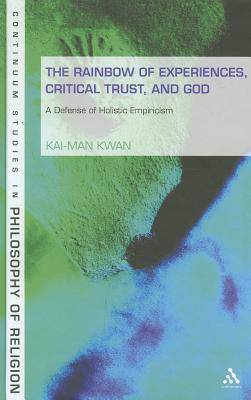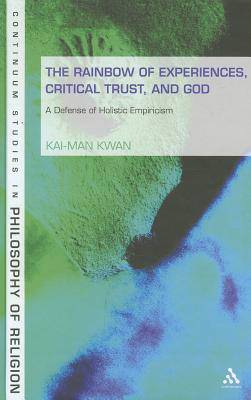
- Retrait gratuit dans votre magasin Club
- 7.000.000 titres dans notre catalogue
- Payer en toute sécurité
- Toujours un magasin près de chez vous
- Retrait gratuit dans votre magasin Club
- 7.000.0000 titres dans notre catalogue
- Payer en toute sécurité
- Toujours un magasin près de chez vous
241,95 €
+ 483 points
Format
Description
The question of whether religious experience can be trusted has been hotly debated in epistemology and philosophy of religion in recent years. Kwan surveys this contemporary philosophical debate, provides in-depth analysis of the crucial issues, and offer arguments for an affirmative answer to the above question.
Kwan first argues against traditional empiricist epistemologies and defends Swinburne's Principle of Credulity which holds that we should trust our experiences unless there are special considerations to the contrary. The Principle of Credulity is renamed the Principle of Critical Trust to highlight the need for balance between trust and criticism and is used as the foundation for a new approach to epistemology, the Critical Trust Approach (CTA), which maintains an emphasis on experience but attempts to break loose of the straitjacket of traditional empiricism by broadening the evidential base of experience. Kwan then widens his focus by looking at theistic experience in the contemporary multicultural context.The question of whether religious experience can be trusted has been hotly debated in epistemology and philosophy of religion in recent years. Kwan surveys this contemporary philosophical debate, provides in-depth analysis of the crucial issues, and offer arguments for an affirmative answer to the above question. Kwan first argues against traditional empiricist epistemologies and defends Swinburne's Principle of Credulity which holds that we should trust our experiences unless there are special considerations to the contrary. The Principle of Credulity is renamed the Principle of Critical Trust to highlight the need for balance between trust and criticism and is used as the foundation for a new approach to epistemology, the Critical Trust Approach (CTA), which maintains an emphasis on experience but attempts to break loose of the straitjacket of traditional empiricism by broadening the evidential base of experience. Kwan then widens his focus by looking at theistic experience in the contemporary multicultural context.
Spécifications
Parties prenantes
- Auteur(s) :
- Editeur:
Contenu
- Nombre de pages :
- 314
- Langue:
- Anglais
- Collection :
- Tome:
- n° 3
Caractéristiques
- EAN:
- 9781441174017
- Date de parution :
- 11-08-11
- Format:
- Livre relié
- Format numérique:
- Genaaid
- Dimensions :
- 155 mm x 236 mm
- Poids :
- 657 g

Les avis
Nous publions uniquement les avis qui respectent les conditions requises. Consultez nos conditions pour les avis.






